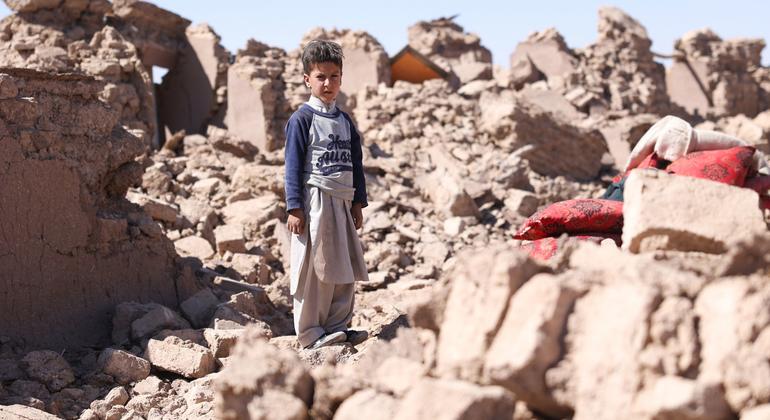Kanni Wignaraja, Director of UNDP’s Regional Bureau for Asia and the Pacific, recently visited Afghanistan and highlighted the dire situation in the country. She stated that 69 per cent of Afghans are “subsistence insecure” and lack basic resources, with the impact of continuous natural disasters exacerbating the situation. The Afghan economy has contracted by 27 per cent since the Taliban takeover in 2021, leading to economic stagnation, high unemployment, and limited access to electricity. Sectors such as finance have collapsed, leaving small and medium enterprises (SMEs) and farmers as the main economic drivers.
Wignaraja also expressed concern about the situation of women and girls in Afghanistan. The Taliban has imposed severe restrictions on women, including dress codes and employment opportunities. While women can work in sectors like health, their employment in the public sector has dropped significantly. The ban on girls’ education is a major challenge, with no girls graduating from twelfth grade last year, hindering their ability to pursue higher education or technical careers.
The UNDP official highlighted the challenges facing local economies in Afghanistan, noting the lack of capital, especially in the private sector. While UNDP is supporting microfinance initiatives, the lack of cash flow has limited the impact of these efforts. Wignaraja expressed hope that recent funds from the World Bank for climate projects could attract other global climate investments to support economic growth at the local level. She emphasized the importance of allowing household and local economies to recover to improve living conditions for Afghan communities.
During her visit to Herat province, the epicenter of last October’s earthquakes, Wignaraja observed the contrast between villages still living in tents without access to water and those beginning to build permanent structures. She stressed the need to support household and local economies to help communities transition from temporary shelters to more sustainable living conditions. Supporting women-led businesses is a key focus for UNDP, with initiatives to assist 75,000 women-owned and operated businesses in Afghanistan.
In conclusion, Wignaraja emphasized the importance of addressing the economic challenges facing Afghanistan, particularly in the wake of the Taliban takeover and ongoing natural disasters. UNDP is working to support women’s empowerment, local economic recovery, and access to resources to improve the livelihoods of Afghan communities. By investing in microfinance initiatives, climate projects, and women-led businesses, UNDP aims to help Afghanistan rebuild and recover from the current crisis.









